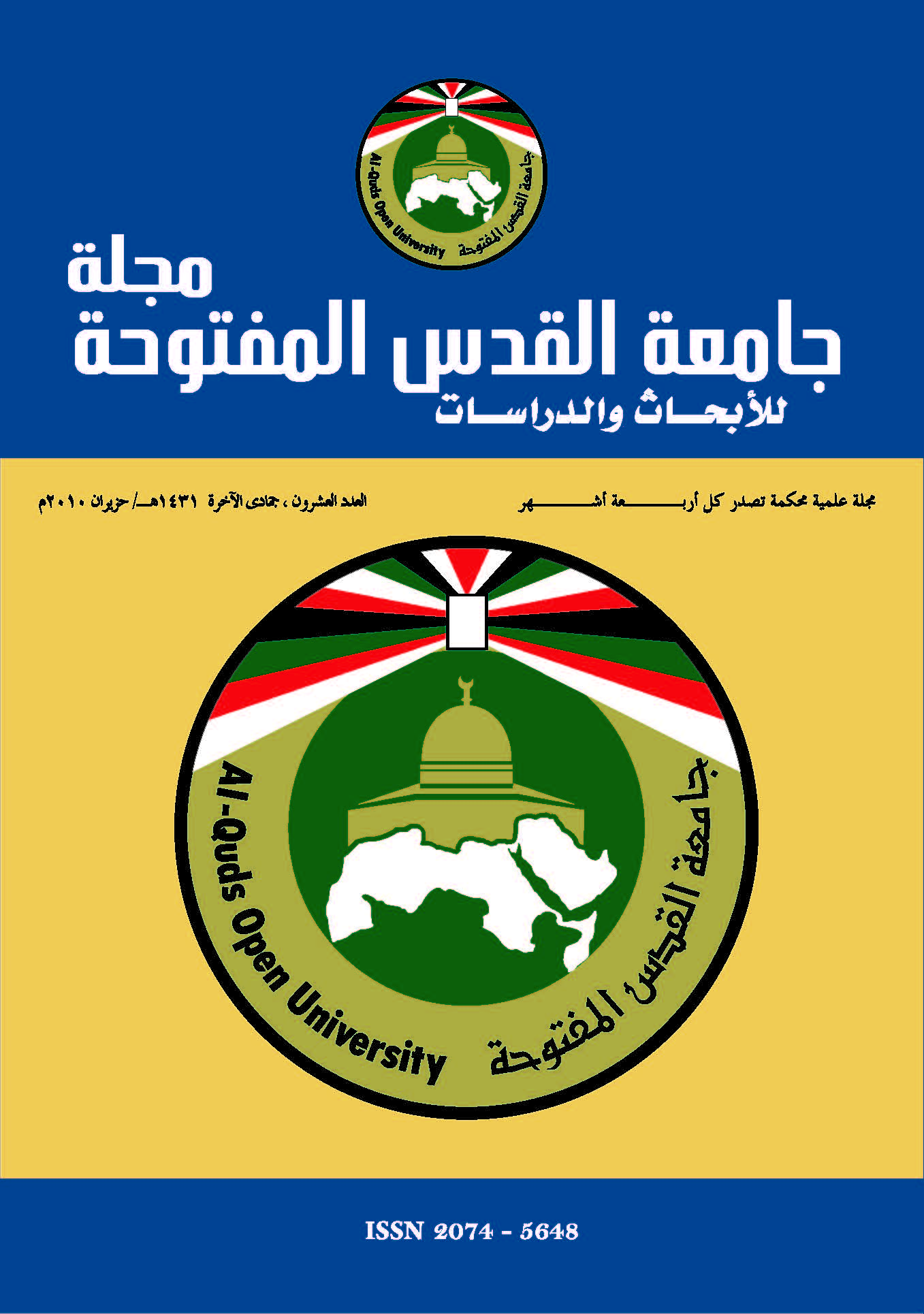Employing New Technology in English Language Teaching/Learning at Al-Quds Open University
Keywords:
Al- Quds Open University, New technology, EFL teaching/ learning, Virtual Classroom, Multimedia, Web- based Learning, Training, Palestine.Abstract
This study aimed to explore the feasibility of using new technologies in
teaching/ learning EFL at Al- Quds Open University (QOU) . For this purpose,
two questionnaires were developed and distributed amongst (122) fourthyear
English major students and (33) EFL tutors. The study revealed that most
EFL tutors and students at QOU felt highly motivated, had the basic computer
skills, showed strong preference, and pinned high expectations on using new
technologies in their EFL classes. According to the study, about half of EFL
tutors and students had easy access to computers. But the majority of them
highlighted the scarcity of educational software, and EFL students expressed
more concern than their tutors about time limitations. Although EFL tutors
and students found the technologies available in their study centers motivating
and auxiliary for developing their learning tools and language skills, active
use of new technologies in EFL learning/ teaching is not satisfactory, and
the levels of confidence in the currently- used print materials and methods
are still strong. In the light of these mixed results, theoretically speaking, the
ground seems to be paved for QOU administration to embark on the project
of incorporating e- learning into its EFL teaching- cum- learning process.
However, practically speaking, given the technical, economic, social, and
cultural constraints brought up by some EFL students, the study recommends
that QOU should, at least at this early stage, combine new technologies with
the current mode of teaching and learning. Using such a blend with its EFL
learners, QOU can give them the freedom to choose their preferred media.
Once the required technologies, efficient Internet services and educational
software of high quality are all secured, and EFL tutors and students become
properly trained and accustomed to using new technologies, more daring
steps towards the integration of new technologies into EFL learning/ teaching
at the expense of currently used methods can be taken.
Downloads
Published
How to Cite
Issue
Section
License
- The editorial board confirms its commitment to the intellectual property rights
- Researchers also have to commit to the intellectual property rights.
- The research copyrights and publication are owned by the Journal once the researcher is notified about the approval of the paper. The scientific materials published or approved for publishing in the Journal should not be republished unless a written acknowledgment is obtained by the Deanship of Scientific Research.
- Research papers should not be published or republished unless a written acknowledgement is obtained from the Deanship of Scientific Research.
- The researcher has the right to accredit the research to himself, and to place his name on all the copies, editions and volumes published.
- The author has the right to request the accreditation of the published papers to himself.













_2.png)
_.png)
_2.png)
_1.png)
_.png)

